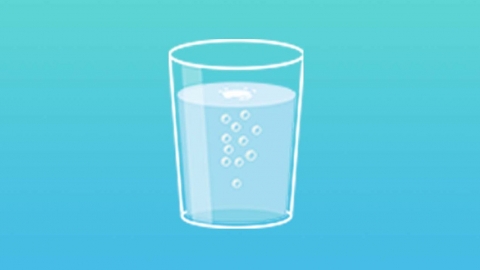Why is my urine still yellow even after drinking a lot of water, and what should I do?
Generally, if urine remains yellow despite drinking plenty of water, it may be caused by factors such as food pigments, physiological concentration of morning urine, acute cystitis, viral hepatitis, or autoimmune hemolytic anemia. If discomfort occurs, it is recommended to seek timely medical consultation and treatment at a正规 hospital. Detailed explanations are as follows:
1. Food Pigment Influence
Consuming large amounts of carotene-rich foods such as carrots and pumpkin within a short period may cause pigments to be incompletely metabolized and excreted through urine, resulting in yellow-colored urine. Reducing intake of such foods and increasing water consumption can help urine color gradually return to normal.
2. Physiological Concentration of Morning Urine
During nighttime sleep, the kidney's filtration function slows down, and urine remains in the bladder for a long time, increasing the concentration of metabolic waste. Even if water is consumed before bedtime, morning urine may still appear dark yellow. Regular water intake and frequent urination after waking up can improve this condition.

3. Acute Cystitis
Bacterial infection causing inflammation of the bladder leads to the presence of inflammatory substances such as white blood cells and pus cells in the urine, resulting in yellow-colored urine, often accompanied by frequent and painful urination. Under medical guidance, anti-infective medications such as Cefdinir Capsules, Ciprofloxacin Hydrochloride Tablets, and Nitrofurantoin Enteric-coated Tablets may be used. Additionally, frequent urination should be encouraged, and urine retention should be avoided.
4. Viral Hepatitis
Hepatitis viruses damage liver cells, affecting bilirubin metabolism, which leads to elevated bilirubin levels in the blood and excretion through urine, causing darkened urine resembling tea. Under medical guidance, antiviral medications such as Tenofovir Disoproxil Fumarate Tablets, Lamivudine Tablets, and Entecavir Dispersible Tablets may be used. Alcohol consumption should also be avoided to reduce the burden on the liver.
5. Autoimmune Hemolytic Anemia
Autoantibodies destroy red blood cells, and the released hemoglobin enters the urine after metabolism, causing tea-colored or yellow urine. Under medical guidance, medications such as Prednisone Acetate Tablets, Azathioprine Tablets, and Cyclophosphamide Tablets may be used for treatment. Strenuous exercise should be avoided in daily life to prevent exacerbation of hemolysis.
In daily life, it is important to maintain a consistent daily water intake to keep urine light yellow; avoid long-term excessive consumption of pigment-rich foods; maintain personal hygiene to prevent urinary tract infections; and undergo regular physical check-ups to detect abnormalities in the liver, kidneys, and blood system early for prompt intervention and treatment.







